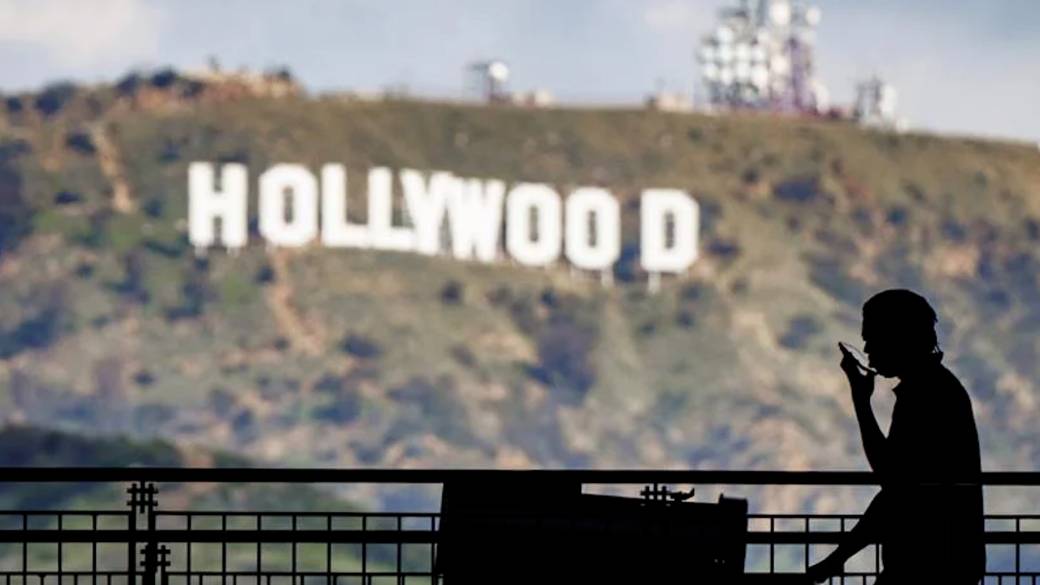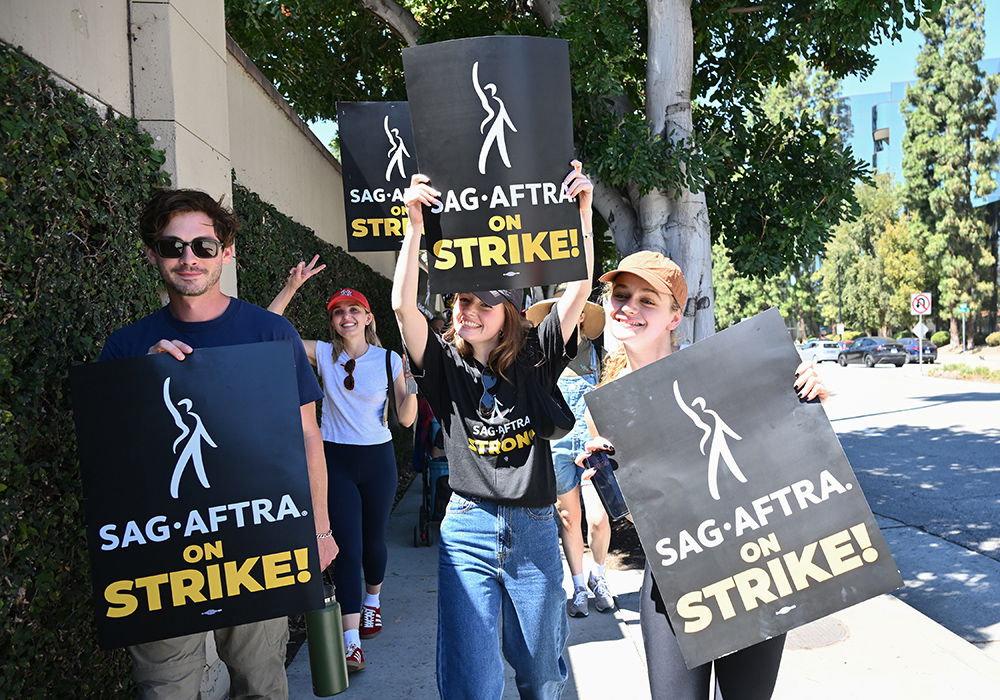Hollywood Shutdown: Actors And Writers On Strike – What It Means For The Industry

Table of Contents
The Writers' Strike: Core Issues and Demands
The writers' strike, initiated by the Writers Guild of America (WGA), represents a crucial turning point in the ongoing battle for fair compensation and working conditions in the entertainment industry. The core issues fueling this "Hollywood shutdown" are deeply rooted in the industry's transformation due to streaming services.
Fair Compensation and Residuals in the Streaming Era
The shift from traditional television models to streaming has drastically altered the landscape of writers' compensation. Traditional television relied on a system of residuals – payments made to writers each time their work was rerun. Streaming services, however, often offer lump-sum payments, leaving writers with significantly less income for the continued use of their creative work. This fundamental change has led to the WGA demanding a fairer share of streaming revenue.
- Specific Demands:
- Increased minimum staffing levels on television shows.
- A fairer share of streaming revenue based on viewership numbers.
- Improved compensation for short-form content.
- Transparency in streaming viewership data.
The Impact of AI on Writing and Screenwriting
The rise of Artificial Intelligence (AI) presents another significant concern for writers. The WGA fears that AI could be used to replace human writers, reducing job security and diminishing the value of creative professionals. Their demands include establishing safeguards to prevent AI from undermining their livelihoods and ensuring the protection of their intellectual property.
- Specific Demands:
- Prohibition of using AI-generated material as a writing substitute.
- Strict regulations on the use of AI in script development.
- Clear guidelines regarding the ownership and copyright of AI-generated content.
- Fair compensation when AI is used to enhance or augment human creative work.
The Actors' Strike: Joining Forces and Shared Concerns
SAG-AFTRA (Screen Actors Guild - American Federation of Television and Radio Artists), representing actors, joined the WGA on strike, amplifying the impact of the "Hollywood shutdown." The actors' concerns largely mirror those of the writers, focusing on fair wages, working conditions, and the ethical use of AI.
Fair Wages and Working Conditions
Actors, particularly those working on streaming projects, face concerns about fair compensation and unsustainable working hours. The shift to streaming has often meant reduced salaries and increased pressure to produce more content within shorter timeframes.
- Specific Concerns:
- Wage disparities between streaming and traditional media.
- Inadequate rest periods and excessively long working hours.
- Lack of health insurance and retirement benefits for background actors.
- Unfair use of actors' image and likeness in promotional material without additional compensation.
The Role of AI and the Use of Actors' Likenesses
Similar to the writers, actors are concerned about the potential misuse of AI. The technology enables the creation of deepfakes and other digital likenesses, potentially allowing studios to exploit actors' images and voices without their consent or compensation.
- Specific Concerns:
- The use of AI to create deepfakes without the actor's permission.
- The potential for AI to replace actors in future productions.
- The lack of regulation and protection regarding the use of actors' digital likenesses.
- The need for transparency and consent when AI is used in relation to actors' performances.
Self-Tape Auditions and the Impact on Actors' Well-being
The increasing reliance on self-tape auditions has created additional financial and emotional burdens for actors. These auditions often require actors to incur expenses for equipment and editing, without any guarantee of employment, negatively impacting their mental health.
- Specific Concerns:
- Lack of compensation for time and expenses related to self-tape auditions.
- The emotional toll of constant self-promotion and competition.
- The accessibility issues faced by actors in different geographical locations.
- The need for regulated guidelines and fair compensation for self-tape auditions.
The Economic Impact of the Hollywood Shutdown
The "Hollywood shutdown" has wide-ranging economic consequences, extending far beyond the creative professionals directly involved.
Impact on Production Companies and Studios
The halted production has led to significant financial losses for production companies and studios. Moreover, the ripple effect extends to numerous related industries, including catering, transportation, and post-production.
- Examples:
- Major film and television projects delayed indefinitely.
- Layoffs and reduced working hours for crew members.
- Loss of revenue for businesses that service the entertainment industry.
- Reduced investment in future projects.
Global Economic Consequences
The Hollywood shutdown's impact is not limited to the United States. International film distribution, tourism, and related industries worldwide are experiencing negative consequences.
- Examples:
- Delays in movie releases globally.
- Reduced tourism revenue in locations typically used for film productions.
- Negative impacts on merchandise and licensing agreements.
- Uncertainty in the global film market.
Conclusion
The "Hollywood shutdown," stemming from the combined writers' and actors' strike, marks a critical juncture for the entertainment industry. The core issues – fair compensation in the streaming era, responsible AI integration, and improved working conditions – demand a fundamental reevaluation of industry labor practices. The economic repercussions extend globally, highlighting the strike's profound impact. Staying informed about developments in this crucial "Hollywood shutdown" is essential. Support the striking writers and actors in their fight for fair treatment and a sustainable future for the entertainment industry.

Featured Posts
-
 2024 Willie Nelson 4th Of July Picnic Texas Location Announced
Apr 29, 2025
2024 Willie Nelson 4th Of July Picnic Texas Location Announced
Apr 29, 2025 -
 2025 Porsche Cayenne Interior And Exterior Detailed Photo Showcase
Apr 29, 2025
2025 Porsche Cayenne Interior And Exterior Detailed Photo Showcase
Apr 29, 2025 -
 Wga And Sag Aftra Strike Complete Hollywood Shutdown
Apr 29, 2025
Wga And Sag Aftra Strike Complete Hollywood Shutdown
Apr 29, 2025 -
 Fussball Oesterreich Pacult Ersetzt Jancker Neuer Coach In Klagenfurt
Apr 29, 2025
Fussball Oesterreich Pacult Ersetzt Jancker Neuer Coach In Klagenfurt
Apr 29, 2025 -
 La Fire Aftermath Landlords Face Backlash Over Rent Increases
Apr 29, 2025
La Fire Aftermath Landlords Face Backlash Over Rent Increases
Apr 29, 2025
